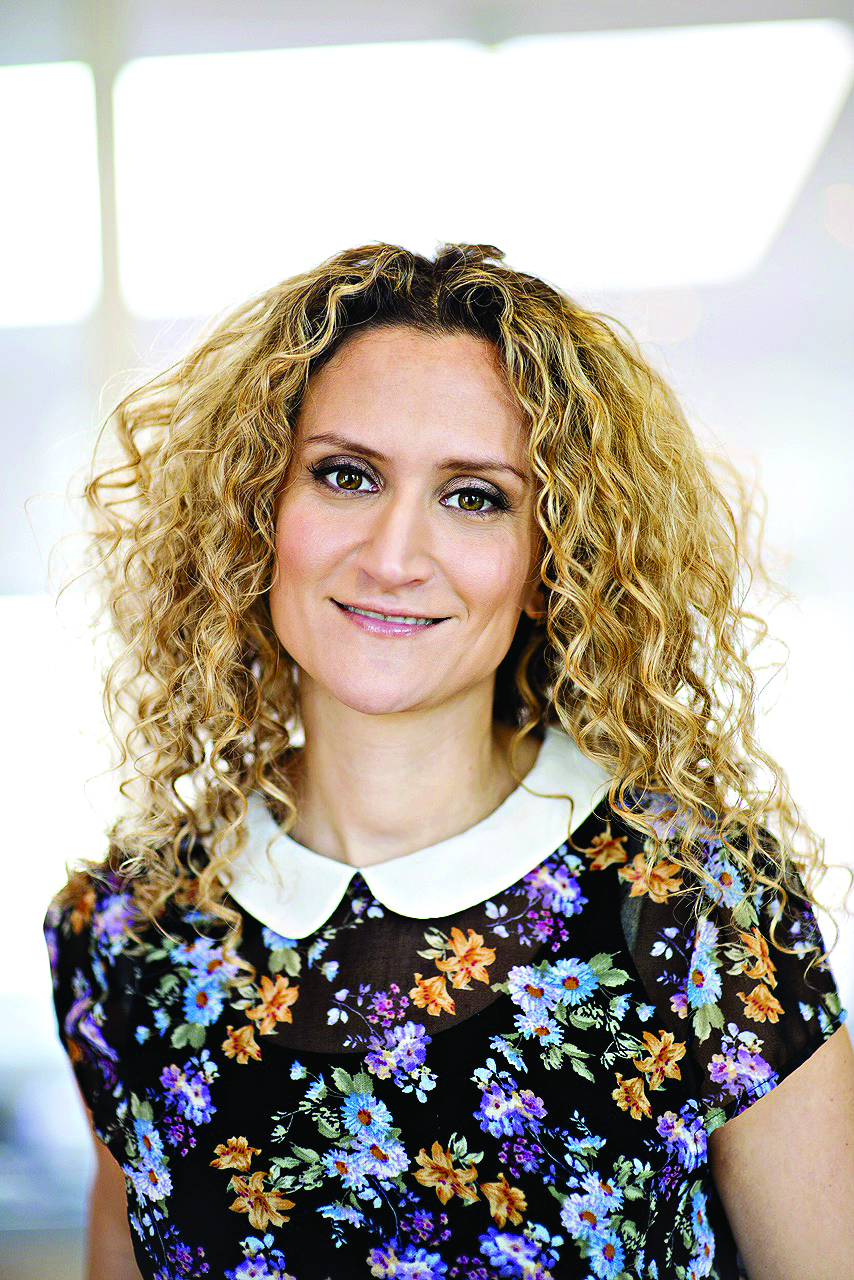Ask Dr Ellie Cannon!
Jewish News' resident GP addresses concerns about labyrinthitis, abdominal pain and breast cancer screening in her latest column
Q I had labyrinthitis last winter, which was extremely debilitating. Is the condition likely to return?
Labyrinthitis is an infection on the inner part of the ear known as the labyrinth. The labyrinth is the part of the ear that controls balance, so when it is inflamed and infected, your balance is affected dramatically.
It causes people to suffer tremendous dizziness, where the room spins and often people have to hold on to firm objects just to walk across the room. It also makes people feel nauseated and sick, with relief only felt when you lie still.
The symptoms are very dramatic, worsened by the fact they can often come on out of ‘nowhere’. It is caused by a viral infection so, usually, like any other virus, lasts two to three weeks which, as you say, is very debilitating.
Get The Jewish News Daily Edition by email and never miss our top stories Free Sign Up
Sometimes sufferers find the unsteadiness may persist for a month or two, but usually once it has cleared it has gone completely.
Very rarely in some people it never clears and symptoms sadly persist for years. There are medications a GP can prescribe for the condition that go some way to ease the dizziness: the response to these are varied. It is equally important to explore what else can help, such as time off work, rest and help at home.
Dizziness can be a dangerous symptom, for example when you are driving, or it can cause people to fall, so this needs to be considered. If in your case the symptoms have gone completely, there is no reason to think it will come back.
Q My nine-year-old gets a lot of tummy aches. Our GP thinks it’s just a phase and nothing to worry about, but could we be missing something serious?

Abdominal pain is a really common symptom in children and can be a result of any number of issues. Regular tummy aches are a well-recognised emotional symptom in children; rather than having a physical cause, they can be a way of a child expressing their anxiety and worry.
Many children go through phases of these emotional/physical symptoms causing symptoms such as tummy aches, difficulty sleeping or problems going to the toilet. So the first issue for you to address is what that could be, whether it’s a school or family worry causing the tummy aches.
Rather than dismissing it as a phase, it is best to find out what is causing it and start talking about it. The second issue is what else could be going on. Tummy aches could be the result of constipation, bladder infections, food intolerance or other bowel diseases such as Crohn’s. None of these are issues you want to miss so, at the very least, your child should have been examined and possibly sent for some investigations.
This is a hard balance. It is not fair to put a child through invasive tests they may not need, but likewise you don’t want to miss a serious diagnosis. Have a second chat with the GP and tell them what you’re worried about so you can be reassured properly. It may be worth agreeing a time with him or her when you will start investigations if the aches haven’t gone.
Q Should Jewish women go for earlier screening for breast cancer? It seems that so many women in the community are affected by the disease.
You are right to say there are many women within the community affected by breast cancer. Having Jewish ancestry is recognised as a risk for breast cancer, along with many other factors. Screening in this country starts at 50, with women having mammograms every three years into their 70s.
Certain groups of higher risk women will be referred earlier for early screening: there are many criteria but, to simplify things, it involves having more than one close relative diagnosed or cases in women younger than 40 in the family.
For Jewish women, because it is a risk factor in itself, they can be referred to specialist clinics for risk assessment with only one first or second degree relative diagnosed with the disease.
This does not mean you will necessarily have earlier screening, but rather a full risk assessment taking into account many factors – not just your heritage – to see how early screening should start for you. The other important issue as far as breast cancer is concerned is the BRCA gene.
Three mutations of the BRCA genes, which cause early-age and aggressive breast cancers, are found at higher rates within the Ashkenazi community. Therefore testing for BRCA may be an option for Jewish women even if you have no breast cancer in the family. If you are eligible, you can participate in breast cancer research at BRCA Protect. www.brcaprotect.org

Thank you for helping to make Jewish News the leading source of news and opinion for the UK Jewish community. Today we're asking for your invaluable help to continue putting our community first in everything we do.
For as little as £5 a month you can help sustain the vital work we do in celebrating and standing up for Jewish life in Britain.
Jewish News holds our community together and keeps us connected. Like a synagogue, it’s where people turn to feel part of something bigger. It also proudly shows the rest of Britain the vibrancy and rich culture of modern Jewish life.
You can make a quick and easy one-off or monthly contribution of £5, £10, £20 or any other sum you’re comfortable with.
100% of your donation will help us continue celebrating our community, in all its dynamic diversity...
Engaging
Being a community platform means so much more than producing a newspaper and website. One of our proudest roles is media partnering with our invaluable charities to amplify the outstanding work they do to help us all.
Celebrating
There’s no shortage of oys in the world but Jewish News takes every opportunity to celebrate the joys too, through projects like Night of Heroes, 40 Under 40 and other compelling countdowns that make the community kvell with pride.
Pioneering
In the first collaboration between media outlets from different faiths, Jewish News worked with British Muslim TV and Church Times to produce a list of young activists leading the way on interfaith understanding.
Campaigning
Royal Mail issued a stamp honouring Holocaust hero Sir Nicholas Winton after a Jewish News campaign attracted more than 100,000 backers. Jewish Newsalso produces special editions of the paper highlighting pressing issues including mental health and Holocaust remembrance.
Easy access
In an age when news is readily accessible, Jewish News provides high-quality content free online and offline, removing any financial barriers to connecting people.
Voice of our community to wider society
The Jewish News team regularly appears on TV, radio and on the pages of the national press to comment on stories about the Jewish community. Easy access to the paper on the streets of London also means Jewish News provides an invaluable window into the community for the country at large.
We hope you agree all this is worth preserving.
-
By Brigit Grant
-
By Laurent Vaughan - Senior Associate (Bishop & Sewell Solicitors)
-
By Laurent Vaughan - Senior Associate (Bishop & Sewell Solicitors)
-
By Laurent Vaughan - Senior Associate (Bishop & Sewell Solicitors)
-
By Laurent Vaughan - Senior Associate (Bishop & Sewell Solicitors)






















